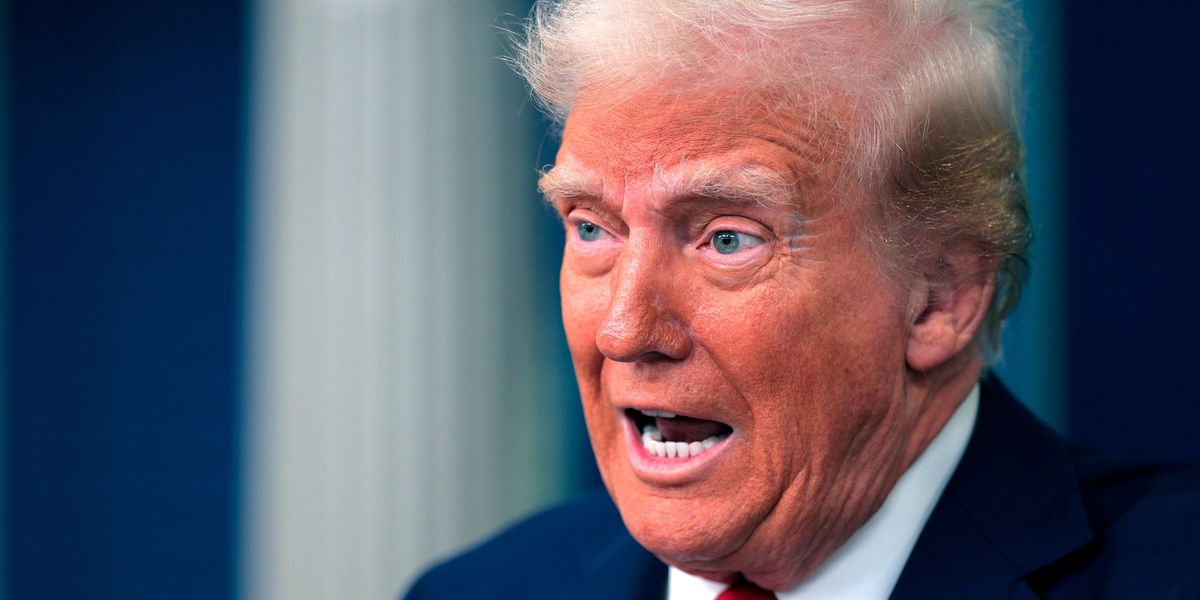Trump Surveillance Tech Sparks Privacy Fears on Reddit
Tech Community Sounds Alarm Over New Surveillance Methods
A recent discussion on Reddit's r/technology forum has ignited intense debate about surveillance technology and privacy rights, with users expressing deep concerns about authoritarian overreach through digital monitoring systems. The conversation, started by u/johnnierockit, has attracted nearly 20,000 upvotes and hundreds of comments from technology enthusiasts and privacy advocates.
What's particularly striking about this discussion isn't just the numbers—it's the level of technical knowledge being shared. These aren't casual observers; we're talking about developers, IT professionals, and tech-savvy individuals who understand exactly how these systems work behind the scenes.
Palantir: The Software Company Under Fire
One of the most upvoted comments came from user Busy10, who bluntly stated: "Palantir is being used for this. That software company is pure evil...." This comment alone received over 2,300 upvotes, suggesting widespread agreement within the tech community about concerns regarding data analytics companies.
Now, I'm no expert on government contracts, but when tech professionals start calling out specific companies by name, that usually means something significant is happening. Palantir, for those who might not know, specializes in big data analytics and has been involved in various government surveillance projects over the years.
The Invisible Nature of Modern Authoritarianism
Perhaps the most chilling observation came from No-Mushroom5934, who received nearly 2,200 upvotes for this insight: "People think authoritarianism comes with tanks in the street. No—it's tracking software, facial recognition, AI systems you can't even see. That's how you lose freedom without even noticing..."
This comment really hits different when you think about it. We're not talking about obvious oppression here. Instead, it's the gradual erosion of privacy through sophisticated technology that most people don't even realize exists. And honestly? That's probably what makes it so effective.
AI and Facial Recognition: The New Surveillance State
The discussion highlighted several key technologies that are raising red flags among privacy advocates:
Facial recognition systems that can track individuals across multiple locations AI-powered data analysis that can predict behavior patterns Cross-platform tracking software that monitors digital footprints Predictive policing algorithms that target specific communities
Legislative Concerns and Data Access
User charcoalist brought up another concerning point about current legislation: "The omnibus bill in the Senate right now is trying to prevent states from regulating AI for the next 10 years." They went on to mention concerns about sensitive data access, which adds another layer to this complex issue.
It's fascinating (and terrifying) how these technological capabilities are expanding faster than our ability to regulate them. Think about it—we're essentially flying blind into a future where AI systems have unprecedented access to personal information.
Historical Context: Learning from the Patriot Act
Several users, including coconuthorse, drew connections to previous privacy legislation: "I love how everyone forgets the Patriot Act. Probably the most invasive piece of legislation to tear into your privacy and previous rights."
This historical perspective is crucial because it shows how privacy erosion often happens gradually, through legislation that seems reasonable at the time but creates lasting impacts on civil liberties. The tech community seems acutely aware of these patterns repeating themselves.
What This Means for Average Citizens
Here's the thing that really gets me about this whole discussion—most people have no idea how sophisticated these surveillance systems have become. We're talking about technology that can:
Track your movements across multiple cities Analyze your purchasing patterns to predict behavior Monitor your social media activity for "risk assessment" Cross-reference your data with thousands of other sources
And the scariest part? Much of this happens completely invisibly.
Community Response and Implications
What's particularly noteworthy about the Reddit discussion is the level of technical expertise being displayed. These aren't conspiracy theories from random internet users—these are informed concerns from people who actually work with this technology daily.
The fact that this post received nearly 20,000 upvotes suggests these concerns resonate widely within the tech community. When the people who build and maintain our digital infrastructure start raising alarm bells, maybe it's time the rest of us start paying attention.
Frequently Asked Questions
What is Palantir and why are people concerned about it?
Palantir is a data analytics company that specializes in big data analysis for government and corporate clients. Tech professionals are concerned because of its extensive surveillance capabilities and government contracts.
How does modern digital surveillance differ from traditional methods?
Unlike traditional surveillance, digital monitoring happens invisibly through AI systems, facial recognition, and data tracking that most people never see or realize is occurring.
Can states regulate AI surveillance technology?
According to Reddit users discussing current legislation, there are efforts to prevent states from regulating AI technology for up to 10 years, which would limit local oversight.
The Bottom Line
This Reddit discussion reveals something important: the tech community is genuinely worried about the direction of surveillance technology. When thousands of developers, IT professionals, and privacy advocates are all expressing similar concerns, that's not just noise—that's a signal.
The conversation started by u/johnnierockit has clearly touched a nerve, and for good reason. We're living through a period where surveillance capabilities are expanding rapidly, often without corresponding increases in oversight or public awareness.
Maybe it's time we all started paying closer attention to what's happening behind the digital curtain. Because as the Reddit community pointed out, by the time we notice our privacy is gone, it might already be too late to do anything about it.
Source: Originally discussed by u/johnnierockit on r/technology
Read the original post: Reddit Thread




